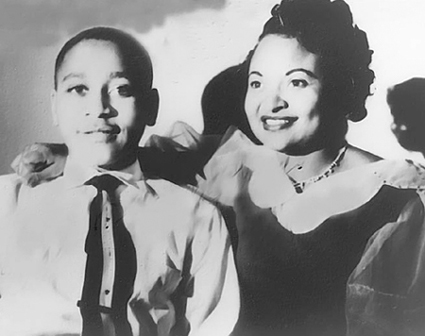

Reviews of Recent Independent, Foreign, & Documentary Films in Theaters and DVD/Home Video
Directed & Produced by: Keith A. Beauchamp. Director of Photography: Rondrick Cowins, Scott Marshall & Sikay Tang. Edited by: David Dessel. Music by: Jim Papoulis. Released by: THINKFilm. Country of Origin: USA. 70 min. Not Rated.
Shot on video, this do-it-yourself low-tech documentary makes the time and events of 50 years
ago feel immediate. In the sleepy junction of Money, Mississippi, Emmett Till, a 14-year-old
African American from Chicago, whistled at a white woman in the summer of 1955.
Contemporary interviews with his cousins described the encounter. “He had no way of
conceiving what the South was like,” according to Rev. Wheeler Parker. It was Till’s first time in
the Deep South. Days later, two white men, Roy Bryant, the woman’s husband, and his half
brother J.W. Milam kidnapped Till at gun point from his uncle’s home in the middle of the night.
His mutilated and burnt body was found three days later in a river bound by barbed wire. A kangaroo court with an all-white, all-male jury tried and acquitted
Bryant and Milam for the murder, and a grand jury never indicted the two for kidnapping.
Months after their trial, the two men sold their story to Look magazine for $4000, admitting their
guilt.
The talking head interviews vividly draw the viewer in, especially Till’s mother, Mamie
Till-Mobley, as she describes seeing her son’s corpse for the first time. Chillingly, director Keith
A. Beauchamp interviews one of Till’s Mississippi friends, “Ruthie Mae.” Her face’s obscured,
never clearly shown. Apparently 50 years later, fear of retaliation still endures for Southern
blacks.
Beauchamp’s galvanizing campaign for justice distinguishes it from “The Murder of Emmett
Till” episode of the PBS series American Experience. Information in both pieces
overlap, until Beauchamp delves into the question of accomplices, some of whom may still be
alive. Allegedly at least two men, both black, restrained Till during the kidnapping; in a coup,
Beauchamp interviews one of them, Henry Lee Loggins, a local who denies any involvement in
the murder. An October 2004 60 Minutes report explored the reopening of the case by the
US Justice Department, and singled out Beauchamp’s research as the impetus for the new
investigation. Kent Turner
|